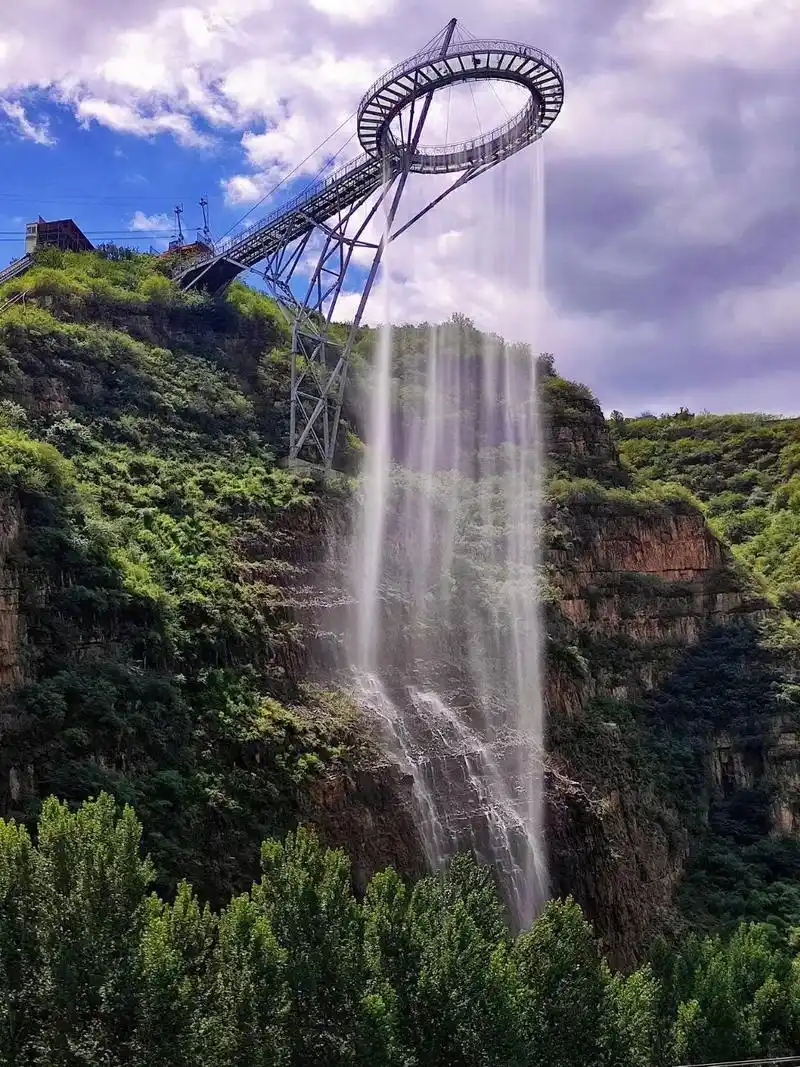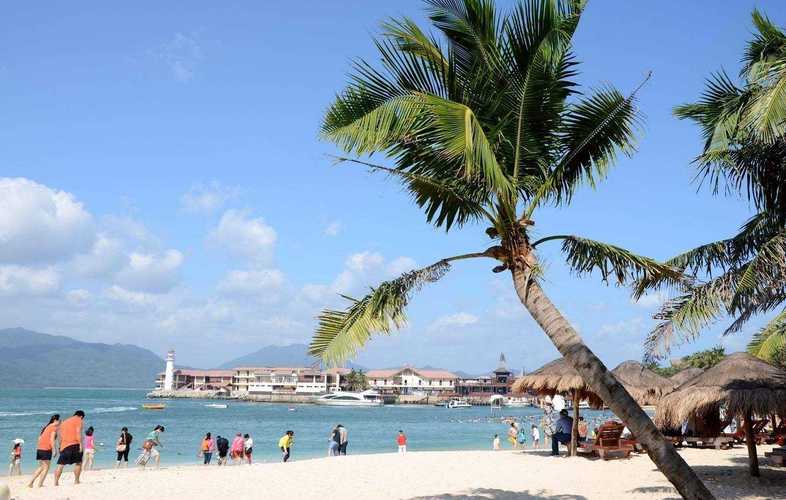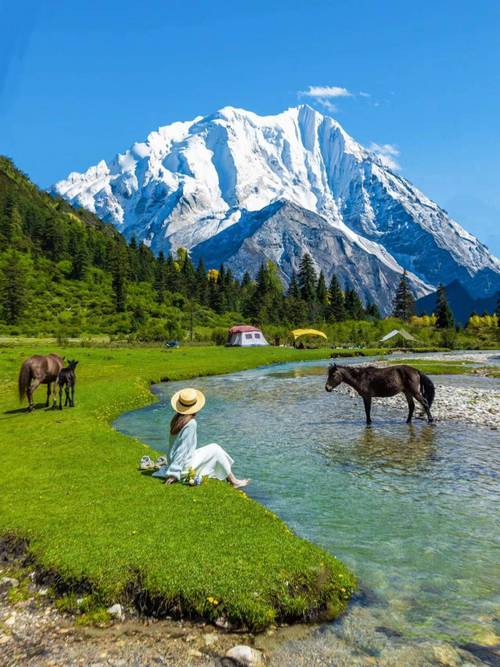China Travel
Cheap China Travel: Ankang’s Han River Lakes and Forest Parks for Less
Discovering Ankang: Budget-Friendly Adventures Along the Han River and in Lush Forest Parks
Nestled in the southern region of Shaanxi Province, Ankang remains one of China’s hidden gems, often overlooked by international tourists in favor of flashier destinations like Beijing, Shanghai, or Xi’an. Yet for the discerning traveler seeking authenticity, natural beauty, and profound cultural experiences without stretching their budget, Ankang offers an unparalleled opportunity. With its serene Han River, lush forest parks, and rich history, this city provides a perfect blend of relaxation and adventure—all accessible without breaking the bank.
The Allure of Ankang: A Hidden Treasure
Ankang, whose name translates to "peace and health," has long been celebrated for its clean air, pristine waterways, and verdant landscapes. Unlike many Chinese urban centers, Ankang thrives on a slower, more mindful way of life. The Han River, one of the Yangtze’s major tributaries, flows gracefully through the city, flanked by rolling hills and forests that seem untouched by time. For budget travelers, Ankang is a dream destination: affordable public transport, low-cost accommodations, and many free or inexpensive natural attractions make it possible to immerse oneself in beauty and culture without financial strain.
Exploring the Han River: Scenic Beauty on a Budget
The Han River is the lifeblood of Ankang, and exploring its shores costs little more than time and curiosity. A stroll along the riverbanks, especially at dawn or dusk, offers breathtaking views of misty waters reflecting the surrounding hills. Local fishermen often ply their trade in traditional wooden boats, providing picturesque scenes reminiscent of classical Chinese paintings.
One of the best ways to experience the Han River is by taking a public ferry or renting a bicycle. Ferries are inexpensive, typically costing under ¥20 ($3 USD) for a short trip, and provide a unique perspective of the city and its natural surroundings. Cycling along the dedicated bike paths is even cheaper—bike rentals are widely available for as little as ¥10 per hour. The route from Ankang’s city center to the Xiangxi Cave area is particularly popular, passing through quaint villages and terraced fields.
For those interested in culture, the Han River has historically been a vital trade route, and its banks are dotted with ancient temples and shrines. The Longquan Temple, for example, dates back to the Tang Dynasty and requires only a small donation for entry. Here, visitors can admire traditional architecture and enjoy panoramic views of the river below.
Forest Parks: Ankang’s Green Lungs
Ankang is surrounded by lush forest parks that offer hiking, bird-watching, and picnicking opportunities at minimal cost. The most famous of these is the Nangong Mountain National Forest Park, located just a short bus ride from the city center. Entrance fees are typically under ¥50 ($7 USD), and the park features well-maintained trails that cater to all fitness levels.
Nangong Mountain is renowned for its biodiversity, with ancient trees, rare plants, and abundant wildlife. The hike to the summit rewards visitors with stunning views of the Han River Valley and beyond. Along the way, clear streams and waterfalls provide refreshing spots to rest. For budget travelers, packing a lunch and spending the day exploring the park’s trails is an ideal way to connect with nature without overspending.

Another noteworthy destination is the Xiangxi Cave Scenic Area, which combines forest exploration with cultural sites. The area features limestone caves, Buddhist statues, and lush bamboo groves. Entrance fees are modest, and the experience is both educational and visually captivating.
Budget-Friendly Accommodations and Eateries
Ankang offers a range of affordable lodging options, from hostels to family-run guesthouses. A bed in a clean, centrally located hostel can cost as little as ¥60-¥100 ($9-15 USD) per night, while budget hotels offer private rooms for around ¥150-¥200 ($22-30 USD). Many of these accommodations provide basic amenities such as free Wi-Fi and breakfast, ensuring comfort without luxury prices.
When it comes to food, Ankang’s local cuisine is both delicious and inexpensive. Street food stalls and small restaurants serve regional specialties like Ankang rice noodles (安康米粉), which are flavorful and hearty, often costing under ¥10 per bowl. Other must-try dishes include smoked tofu, river fish soup, and wild vegetable dumplings. For adventurous eaters, the night markets near the Han River offer a variety of snacks at bargain prices.
Cultural Experiences Without the Cost
Ankang’s cultural sites are often low-cost or free. The Ankang Museum, for instance, charges no admission fee and provides insightful exhibits on the region’s history, including artifacts from the Han Dynasty and displays on local folklore. The city’s many public parks, such as the People’s Park, are perfect for people-watching and observing daily life.
Additionally, Ankang is home to a diverse population, including communities of the Tujia and Hui minorities. Visitors can learn about their traditions and customs by attending local festivals or visiting ethnic villages nearby. These experiences, rich in authenticity, often require little more than a respectful attitude and willingness to engage.
Practical Tips for the Frugal Traveler
Traveling to Ankang on a budget is straightforward. The city is accessible by train from major hubs like Xi’an, with hard-seat tickets costing under ¥100 ($15 USD) for a journey of about four hours. Within the city, public buses are efficient and cost just ¥1-2 per ride. Avoiding peak tourist seasons (May and October holidays) can further reduce costs and crowds.
When planning activities, prioritize free or low-cost attractions like walking along the Han River, exploring forest trails, and visiting local markets. Learning a few basic Mandarin phrases can also enhance the experience, as English is not widely spoken in Ankang.
Conclusion: The Value of an Authentic Experience
In a world where travel often becomes synonymous with expense, Ankang stands out as a destination that prioritizes experience over extravagance. The serenity of the Han River, the majesty of its forest parks, and the warmth of its people offer something far more valuable than luxury: a genuine connection to place and culture. For travelers willing to venture off the beaten path, Ankang proves that the richest journeys need not come with a high price tag.
-
上一篇

Affordable China Getaways: Shangluo’s Qinling Scenic Areas and Rural Villages on a Budget
**AffordableChinaGetways:Shangluo’sQinlingScenicAreasandRuralVillageso
-
下一篇

Budget-Friendly China: Hanzhong’s Ancient Roads and Han River Scenery on a Shoestring
**Hanzhong:WhereAncientPathsandRiverDreamsMeettheThriftyTraveler**Ne
相关文章
- Budget China: Fuyang’s Ecological Parks and Rural Scenery for Under $35 a Day
- Cheap Travel in China: Bozhou’s Traditional Medicine Culture and Ancient Streets on a Budget
- Affordable China Destinations: Chizhou’s Jiuhua Mountain and Buddhist Sites on a Budget
- Budget-Friendly China: Huangshan City’s Villages and Tea Plantations on a Shoestring
- Cheap China Travel: Jingdezhen’s Porcelain Culture and Workshops for Less
- Affordable China Getaways: Yingtan’s Longhu Mountain and Taoist Heritage on a Budget
- Budget China: Nanchang’s Tengwang Pavilion and Gan River Night Views for Under $40 a Day
- Cheap Travel in China: Jiujiang’s Poyang Lake and Lushan Mountain Gateway on a Budget
- Affordable China Destinations: Yichun’s(Mingyue Mountain) and Hot Springs for Less
- Budget-Friendly China: Shangrao’s Sanqing Mountain and Ancient Villages on a Shoestring
发表评论
评论列表
- 这篇文章还没有收到评论,赶紧来抢沙发吧~

